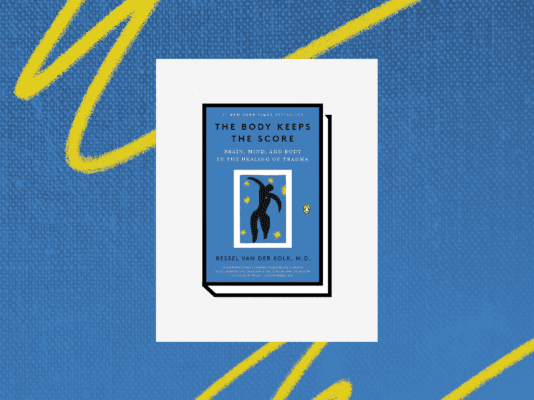Where would we be without our friends? They bring such joy to our lives and such comfort in seasons of difficulty, great and small. A shoulder to cry on. A couch to sleep on. A hand to hold.
Friendship is deeply important. The book of Proverbs shows the great practical and spiritual benefits that friendship brings into our lives (Prov. 11:14, 18:24, 19:20, 27:17). Whatever our circumstances, friendship offers us innumerable joys.
Since friendship is so important, we must invest intentional care into it. Have you ever spent time thinking about your goals in friendship? We all want and need friends, but have you ever thought why you want them? We have goals for our work, our family and our finances, but do we consider the importance of goals in our friendships? After all, if our friendships are so important to us, shouldn’t we be intentional in how we think about them, pursue them and grow them?
When we look at Jesus’ life and how he interacted in social settings, his aim was that those he came in contact with would come to know the Father and turn from their sin. Jesus was clear on his reason for walking this earth (Luke 5:22-24, 31-32, 19:10; John 8:19, 17:3). We, now his friends by means of his blood, must follow his example.
The art of surrender
In his wildly helpful book, You Are What You Love, James K. A. Smith encourages Christians to apply some much-needed evaluation to the DNA of our friendships. Smith observes the surrounding culture and the aim behind much of what is constantly before us, arguing that many of the activities that promise to build a sense of community, in reality, actually breed a sense of competition instead.
Within the hemisphere of social media and seemingly innocent activities we participate in, the mindset of competition slowly but surely infiltrates the foundation our friendships. We become obsessed over who is wearing the better clothes, whose blog gets the most traffic, whose marriage is healthier, who abides by the most of Dave Ramsey’s principles. The joys of sports become platforms to shame others. Weekend excursions to the mall become secret missions of self-comparison.
As time passes, our friendships become battlegrounds where we fight against our deepest insecurities and maintain our most precious identities, rather than expose them by serving and caring for our friends. We need to take drastic measures against these toxic pesticides that are wreaking havoc within the soil of our friendships.
Scripture is clear that as we become like Jesus, we must lay ourselves aside and seek out the needs of others, finding ways to serve them, honor them, encourage them and bless them before we have thoughts about bringing focus and attention back to ourselves. In Luke 14:7-11, Jesus rebukes a few wedding guests, explaining we should not compete for distinguished status when we’re around others. Instead, we must seek to give others recognition and honor them in the presence of our friends and acquaintances. Seek the lowest place in the room, Jesus says.
Paul writes in Philippians 2:2-4 that we should exert more energy and brain power thinking about others’ interests, preferences and needs than we do our very own. The Christian shouldn’t act with competitive motives, seeking to get ahead or rise above another person. The Christian’s directive from God’s Word is clear: stay low and focus on others. Don’t worry about how you measure up.
As Christians, we are alive because Christ died. Christ alone accomplished our salvation, the most important victory of all time, through an incomparable act of grace. This had nothing to do with our effort or ability. Ephesians 2:8-9 is clear that we had nothing to do with it because we would never be able to save ourselves. In light of this glorious act, we can’t boast in our own efforts, but instead we boast in God’s amazing kindness. If the most important event in history could not have been accomplished by any one of God’s creatures, why tirelessly seek the high ground to boast in anything that’s less important?
Instead of competing with others, raise a white flag of surrender. God himself surrendered his status in order to give it to us. If he did this for us, we most certainly should do this for each other.
The joy of redirection
So much of what our friendships should be is discipleship. We might think of specifics when we hear the word discipleship, such as a once-a-month coffee meeting, Scripture memory, sexual accountability, evangelism, etc. But when we think of each of these, isn’t this what Jesus calls us to on a regular basis in our friendships?
I think we can learn a lot about the end goal of discipleship from what we’ve already looked at in Jesus’ own life: pointing others to the Father and repenting of sin. That’s the goal for us in a discipleship context, and it’s the goal in our friendships. Daily, through every interaction we have, our aim should be helping others get to know Jesus more intimately by getting to know each other more intimately. One of the biggest ways we do this is heeding Paul’s exhortation (2 Cor. 1:3-7) to give comfort to others in their pain out of the same comfort we ourselves have received.
Because we have gone through seasons of great difficulty, we can bring comfort to others through sharing those times and how God has been faithful. When we surrender our need to compete, we’re free to be vulnerable and transparent about our own struggles, sins, victories and defeats. We can do this because as we think on Christ, we remember our mission to point others back to the Father. We can experience friendship in complete freedom when we lose the desire and fight to be better than others because we know Christ is the most glorious of all.
So our goal isn’t to elevate ourselves, but rather to elevate Christ crucified (1 Cor. 15:3-4). Our desire is that others would find hope in the salvation of the Son. That’s our goal in human interaction. That can happen just as well in the car or at J. Crew as it can in a formal coffee meeting at Starbucks.
That’s the nature of true friendship, and it is the antidote to protecting our friendship from the toxic destruction of pride and self-congratulation. We do this through daily acts of humility, both internally with our minds and externally with our actions, and through a constant redirection of focus from ourselves to God. The Son came so that we could know the Father, and now, we live within the context of our friendships in ways that bring others to know the Son.










